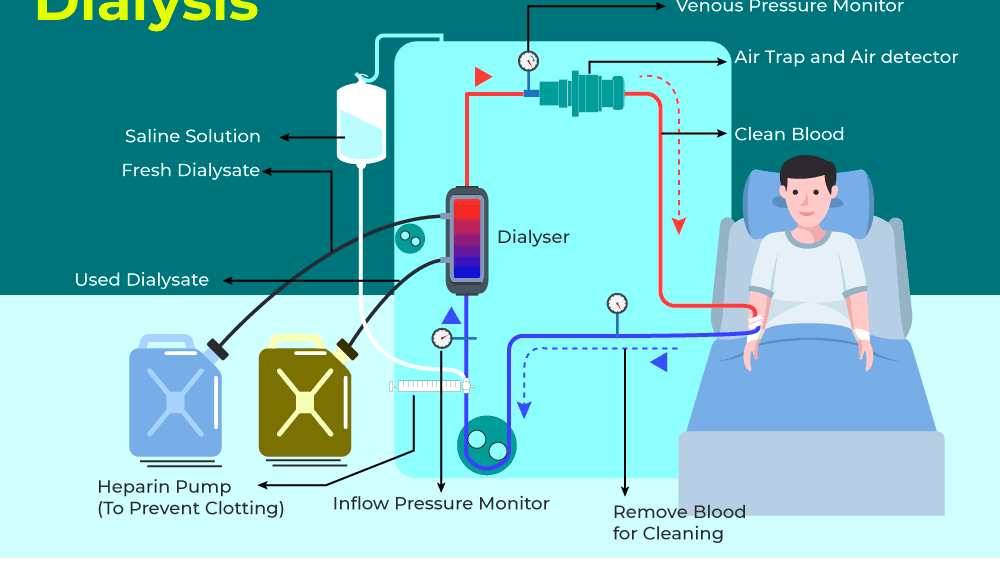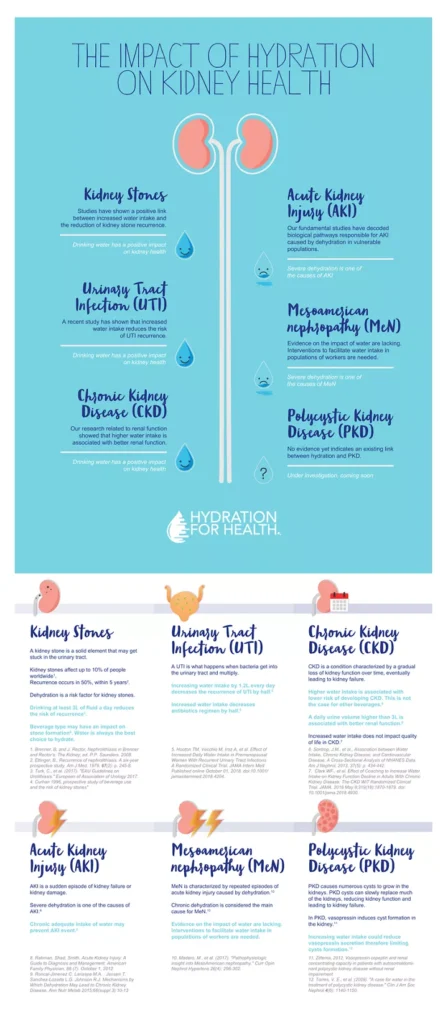What is Dialysis and How Does it Work?
Dialysis is a medical treatment that replaces the function of damaged kidneys by filtering waste, salt, and excess water from the blood. It is essential for patients with chronic kidney disease (CKD) or end-stage renal failure when their kidneys can no longer function independently. There are two main types of dialysis:
- Hemodialysis: Blood is filtered through a machine outside the body.
- Peritoneal dialysis: The blood is filtered through the lining of the abdomen inside the body using a dialysis solution.
Each dialysis session typically lasts 3-4 hours, and most patients require at least three sessions per week to stay healthy – CITI NEWSROOM. Without it, toxins build up in the blood, leading to life-threatening complications.

How Much Does Dialysis Cost in Ghana?
The cost of dialysis in Ghana varies depending on whether it’s done at a private or public facility. On average:
- Private dialysis centers: GHS 1,000 – 2,000 per session
- Public facilities (e.g., Korle-Bu Teaching Hospital): GHS 765 per session, up from GHS 380.
Patients requiring three sessions per week will spend GHS 3,000 weekly or GHS 12,000 monthly. Over the course of a year, this adds up to a staggering GHS 144,000. This financial burden often forces patients to skip treatments or rely on the generosity of family and friends, as most health insurance plans in Ghana do not cover dialysis.
Factors Driving the High Cost of Dialysis
The rising cost of dialysis in Ghana is driven by several factors, including:
- Imported dialysis consumables: All dialysis supplies (e.g., dialyzers, tubing sets) are imported, with high shipping and import duties.
- Energy-intensive procedures: Dialysis centers consume large amounts of electricity and water, raising operational costs.
- Specialized staffing: Nephrologists, dialysis nurses, and technicians are required to manage treatments, adding labor costs.
- Limited government subsidies: While some public facilities offer reduced rates, many patients still rely on out-of-pocket payments.
The Impact of High Dialysis Costs on Ghanaians
The high cost of dialysis creates serious challenges for patients and their families. Without financial assistance or subsidies, many people with chronic kidney disease are unable to afford regular dialysis. This can result in life-threatening complications such as heart failure, fluid overload, or even death.
Even in major urban centers like Accra and Kumasi, where most dialysis services are located, the financial burden remains high. Patients from rural areas often travel long distances to access care, adding transportation costs to their already stretched budgets.
How to Avoid Dialysis: Practical Kidney Health Tips
Given the financial challenges of dialysis, the best approach is preventive care. Here are four essential tips for maintaining kidney health:
1. Stay Hydrated with the DrDoGood Water Challenge
Drinking water regularly is one of the simplest ways to keep your kidneys healthy. Aim to drink 3 liters per day—1 liter in the morning, 1 in the afternoon, and 1 in the evening. Staying hydrated prevents kidney stones and supports kidney function.
For added motivation, join the DrDoGood Water Challenge via the DrDoGood app. This fun and engaging challenge helps participants track their water intake and reduce the risk of developing kidney stones.
2. Use Medication Responsibly
Overuse of certain medications, including painkillers, can harm your kidneys. Avoid purchasing medications from unregulated sources, such as roadside vendors. Always consult a healthcare professional before taking any new drugs and only use medications when necessary –Astena.
3. Reduce Salt and Processed Foods
High salt intake can strain the kidneys and raise blood pressure, increasing the risk of kidney disease. Processed foods and artificial spices are major culprits. Gradually reducing salt in your diet will improve kidney health and lower your risk of chronic conditions like hypertension.
4. Monitor Your Health Regularly
Frequent health checks are essential to catch early signs of kidney disease. Use tools like BMI and A1C calculators to track your weight and blood sugar levels, both of which are critical indicators of kidney health. Early intervention can help prevent kidney complications.

Kidney Stones: A Silent Threat
Kidney stones are a common issue in Ghana, often caused by dehydration, high salt intake, and certain dietary habits. While kidney stones are not the same as kidney failure, untreated stones can damage the kidneys and lead to infections or long-term problems.
The DrDoGood Water Challenge is highly recommended for individuals at risk of developing kidney stones. By tracking daily water intake through the DrDoGood app, participants can ensure they stay hydrated and reduce their chances of developing stones.
The Role of Advocacy in Kidney Health Awareness
Raising awareness about kidney health is crucial, especially given the rising cost of dialysis. Advocacy efforts are needed to push for:
- Better insurance coverage: Ensuring dialysis is covered under the National Health Insurance Scheme (NHIS).
- Government subsidies: Expanding subsidies for low-income patients to make dialysis more affordable.
- Increased public education: Promoting healthy lifestyle habits to prevent kidney disease.
What Can Be Done to Reduce Dialysis Costs in Ghana?
There are a few strategies that could help bring down the cost of dialysis:
- Local production of dialysis consumables: Manufacturing some consumables locally would reduce import costs.
- Government interventions: Subsidies and partnerships with private providers can make dialysis more affordable.
- Expansion of peritoneal dialysis: Encouraging the use of peritoneal dialysis could provide a more cost-effective treatment option, especially in rural areas –Biomed central.
- Charitable support and crowdfunding: Some organizations and individuals use crowdfunding platforms to help cover the cost of dialysis for needy patients –Ghanweb.
Conclusion: Taking Control of Your Kidney Health
The cost of dialysis in Ghana is a major financial burden for many families, but with the right preventive measures, kidney disease can be avoided or managed effectively. By staying hydrated, eating a balanced diet, and using medications responsibly, you can protect your kidneys and avoid the need for dialysis.
For those already diagnosed with kidney disease, consulting with a specialist is essential. Book a consultation through the DrDoGood app to get personalized advice and access the resources you need to manage your health.

